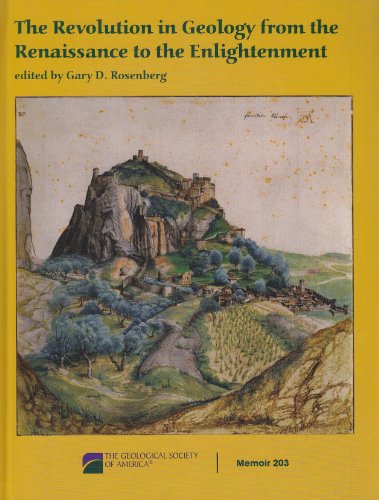

Most ebook files are in PDF format, so you can easily read them using various software such as Foxit Reader or directly on the Google Chrome browser.
Some ebook files are released by publishers in other formats such as .awz, .mobi, .epub, .fb2, etc. You may need to install specific software to read these formats on mobile/PC, such as Calibre.
Please read the tutorial at this link: https://ebookbell.com/faq
We offer FREE conversion to the popular formats you request; however, this may take some time. Therefore, right after payment, please email us, and we will try to provide the service as quickly as possible.
For some exceptional file formats or broken links (if any), please refrain from opening any disputes. Instead, email us first, and we will try to assist within a maximum of 6 hours.
EbookBell Team

4.1
60 reviews

ISBN 10: 0813712033
ISBN 13: 978-0813712031
Author: Gary D. Rosenberg
This scholarly volume explores the dramatic transformation of geological thought in Europe between the Renaissance (roughly the 15th century) and the Enlightenment (18th century). It examines how geology evolved from a largely descriptive, philosophical approach to a rigorous empirical science.
The book includes chapters by historians of science who analyze key developments, debates, and discoveries that shaped the field. It covers topics such as:
The influence of Renaissance humanism and classical texts on natural philosophy
The role of mining and practical knowledge in early geological insights
Changing ideas about fossils, strata, and Earth's age
The shift from biblical explanations to naturalistic interpretations of Earth history
The intellectual context of the Enlightenment that encouraged systematic classification and global exploration
By tracing the roots of modern geology to this pivotal era, the volume demonstrates how broader cultural and scientific changes—like empiricism, secularization, and technological advances—fueled a revolution in understanding Earth's structure and history.
Published by the Geological Society of America as part of its Special Paper series, this book is intended for historians of science, geologists interested in the history of their discipline, and anyone curious about how modern Earth science emerged from centuries of evolving thought.
Preface
Introduction: The revolution in geology from the Renaissance to the Enlightenment
The measure of man and landscape in the Renaissance and Scientific Revolution
Geochemical concepts in Isaac Newton’s early alchemy
From alchemy to science: The Scientific Revolution and Enlightenment in Spanish American mining and metallurgy
Signs and symbols in Kircher’s Mundus Subterraneus
Niels Stensen—Steno, in the world of collections and museums
The Path to Steno’s synthesis on the animal origin of glossopetrae
Hooke–Steno relations reconsidered: Reassessing the roles of Ole Borch and Robert Boyle
Prompters of Steno’s geological principles: Generation of stones in living beings, glossopetrae and molding
The age of Earth in Niels Stensen’s geology
Nicolaus Steno and the problem of deep time
Nicholas Steno and René Descartes: A Cartesian perspective on Steno’s scientific development
On the origin of natural history: Steno’s modern, but forgotten philosophy of science
Nicholas Steno’s way from experience to faith: Geological evolution and the original sin of mankind
The Scientific Revolution and Nicholas Steno’s twofold conversion
Benjamin Franklin and geology
Thomas Jefferson, extinction, and the evolving view of Earth history in the late eighteenth and early nineteenth centuries
“Very vain is Science’ proudest boast”: The resistance to geological theory in early nineteenth-century England
Charles S. Peirce and the “Light of Nature”
Theory choice in the historical sciences: Geology as a philosophical case study
Natural theology, design and law
the revolution in geology from the renaissance
revolution geology
geological revolution
geology in the renaissance
the revolution in geology from the renaissance to the enlightenment
Tags: Gary D Rosenberg, Revolution, Geology, Renaissance, Enlightenment